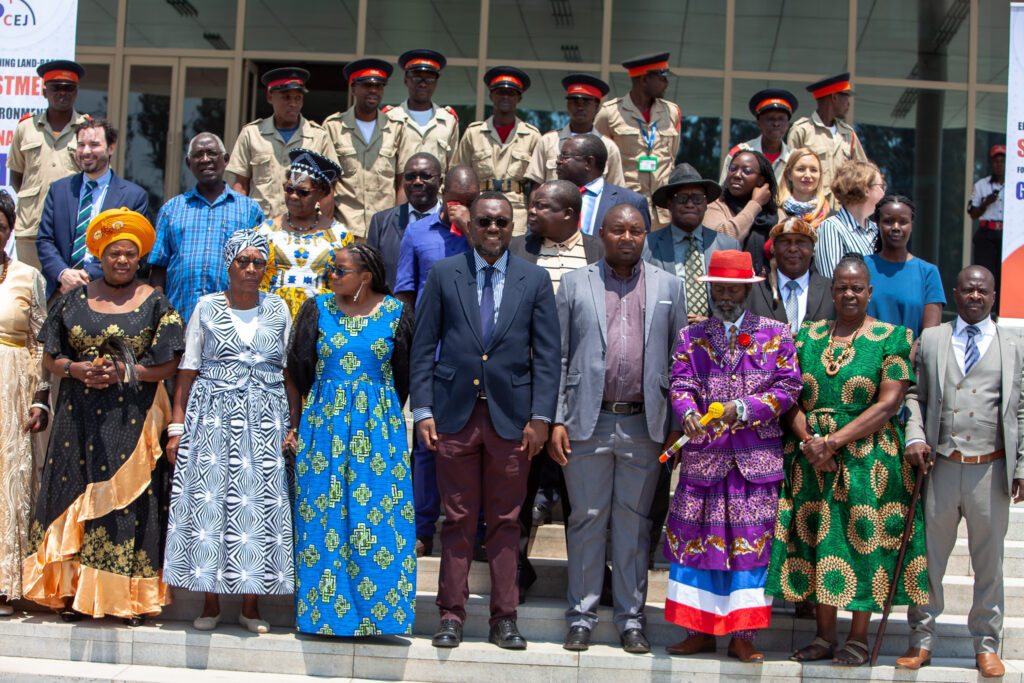Extractive Industries Annual Budgets Towards Environmental Mitigation Initiatives

Evidence Based Research:
The evidence based research was to understand how extractive industries’ environmental mitigation resources, if any, are distributed, managed, appreciate activities and determine budgeted funds earmarked for environmental mitigation. This is meant to provide a basis for advocating for strategic social environmental responsibility, solidifying roles of all stakeholders involved (government, local communities and industries). As part of the project design, a research expert was hired, Questionnaires were developed as a tool to collect information. Surveys were conducted at three levels, specifically tailored for the industry, local Council and community. 8 extractive industries located in Lusaka, Copperbelt and Northwestern Provinces were randomly selected to respond to the questionnaire. As part of developing the questionnaire, CEJ invited representatives from civil societies to review and submit their comments on the questionnaire in order to perfect the set of questions. This was done during a workshop hosted by CEJ. This was supported by the Civil Society Environment Fund(CSEF1).
Zambia is naturally endowed with vast deposits of rich mineral resources throughout the country that include gold, emeralds, copper, uranium and zinc. Zambia’s economic foundational roots began with copper mines. In the first decade after independence (1965 –75), Zambia was rated among the most prosperous countries in sub-Saharan Africa. Copper was the chief contributor to the countries’ Gross Domestic Product (GDP), as the thirst for copper by the emerging Asian markets and the Vietnam War in the 1960’s helped the country gain its distinction as one of the wealthiest on the African continent. However, Zambia’s economic performance began to decline in the 1970’s when copper market prices fell. Since then, the Zambian government has been implementing reforms to reverse the decline. Specifically, in an effort to stabilize the economy, the Zambian government has taken measures to attract investors in the mining industry. For example, the Zambia Mining Act put in place in 1995 features privatization of state-owned mines previously under the Zambia Consolidated Copper Mines Ltd (ZCCM), the liberalization of the fiscal policy and the provision of several tax incentives to mining companies (Ministry of Mines and Mineral Development). Consequently the country has seen increased investment in exploration as well as in small-scale mining. Indisputably, industrial development, especially extractive industries is critical to the economic development of Zambia. The mining industry in Zambia continues to be one of the major contributors to the country’s GDP and has historically been the backbone of most of the country’s social and economic development.
There is increasing concern over the negative impact of mining operations to the surrounding communities and lack of commitment to address social challenges that come with mining. For example, local people have been exposed to high levels of water and air pollution, causing detrimental effects and huge costs to public health. The concept of Corporate Social Responsibility (CSR) has become more prominent worldwide due to its ability to address social and environmental problems associated with the mining industry. CSR is defined as ‘corporate initiative to assess and take responsibility for a company’s effects on the environment and impact on social welfare’ (Investopedia US, 2013). CSR can be considered as an offensive approach in response to its impact on environment and the public. Consequently, as evident in several parts of the world, CSR has promoted activities in areas such as education, health, the environment, culture and the arts (C M Fundanga, 2006). CSR can be an effective key to sustainable development in the long term. Unfortunately, the CSR concept is not widely understood and effectively utilized in Zambia, particularly as a basis for addressing the social and environmental problems associated with extractive industries (N Muzungu, Aug 4 2013). The justification for practice of corporate responsibility leading to sustainability is evident. Currently, CSR is being approached as charity, ranging from regular sponsorship of entertainment activities such as soccer, to irregular and one-off approaches such as giving out presents to hospital patients, orphanages, etc. on Christmas day (M Muweme).
